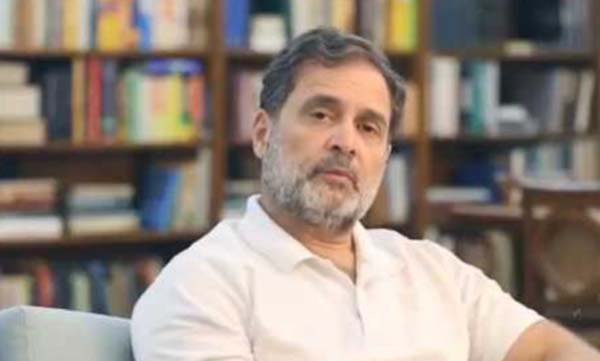Georgetown, Sep 2 (UNI) Guyana is one of the smallest countries in South America, but its elections on Monday might have outsized implications for oil markets and the United States.
Surrounded by mineral resources, Guyana’s oil production is growing and could surpass Iran’s by 2027. But the threat of a military clash is looming over Guyana, because Venezuela claims one of the country’s oil-rich territories.
Meanwhile, Guyana’s extraction of strategic resources has drawn the attention of the United States and distant China, reports CNN.
Although it’s the third smallest country in South America, Guyana has the highest expected growth in oil production in the world through 2035, according to a report by Global Energy Monitor.
By then, the country will already be producing about two million barrels daily – the same amount that Colombia,
Ecuador, Peru, Trinidad and Tobago and Venezuela produced combined in 2022.
In the future, the ability to produce oil sustainably will continue to position Guyana at the centre of the competition between the United States and China, analysts told CNN.
On Monday, Guyana is electing its next president, as well as members of its parliament and regional councils. The current president, Irfaan Ali, leader of the People’s Progressive Party/Civic, is seeking re-election.
The other main contenders are Aubrey Norton, a longtime parliamentarian who is the leader of the opposition, the People’s National Congress Reform party, and the son of a businessman Azurddin Mohamed, representing a new party called We Invest in the Nation (WIN). Mohamed was sanctioned in 2024 by the US, according to a US Treasury Department statement that claimed he sought to “exploit Guyana’s underdeveloped gold sector for personal gain.
The country’s economic transformation began in 2015, when US oil company ExxonMobil discovered nearly 11 billion barrels in deep waters. Since then, the country has clung to oil as a magic bullet for prosperity – a policy pursued by former president David Granger, who governed until 2020.
That strategy has been maintained by current president Ali, who has said the oil wealth will allow the country to mprove its infrastructure and healthcare, among other.
Nothwithstanding the discovery of oil reserves, Guyana is a country with high poverty rates. But since 2019, when oil production began, it has posted a rising GDP, with growth of 63.3 percent in 2022 and 33.8 percent in 2023, according to World Bank data.
In 2024, Guyana’s economy marked its fifth consecutive year of double-digit growth, expanding by 43.6 percent. This was due to oil production and exports, according to the country’s Finance Minister Ashni Singh last January.
The country produces about 650,000 barrels of oil daily. That has made Guyana’s energy sector a central pillar of its own economy, with the IMF highlighting it as having the world’s highest GDP growth rate between 2022 and 2024.
Ryan Berg, director of the Americas Programme at the Center for Strategic and International Studies (CSIS), told CNN that the country will need to “manage its new wealth” in a way that achieves growth “in an inclusive and stable way.”
Imdat Oner, a political analyst at Florida International University who was a former Turkish diplomat in Venezuela, told CNN that elections without major conflicts “would demonstrate that sudden oil wealth doesn’t have to erode democracy, as happened in Venezuela”.
“If the next government manages this boom with transparency and stronger institutions, it could be an example for the entire region. That’s why these elections are important,” Oner said.
This exponentia growth driven by the energy sector has attracted global interest at a time when major producers like Russia and Iran are subject to sanctions, according to Benjamin Gedan, a researcher at Johns Hopkins University and former director for South America at the US National Security Council.
The last electoral process plunged the country into a prolonged and destabilizing political dispute, according to
Gedan, who is also the director of the Latin America Programme at the Wilson Center.
With these elections, Gedan does not rule out the possibility of new social tensions that could deepen polarization along ethnic lines, which he believes could interrupt the country’s development “and make it more vulnerable to potential interference” from Venezuela.
The elections are being held amid increased tension with Venezuela over that country’s claim to sovereignty over the region of Essequibo, where the main economic activities are oil extraction and gold reserves.
An estimated 125,000 people live in that region, which is home to several indigenous groups and rich in natural, forest and agricultural resources.
As a former British colony, from which it became independent in 1966, Guyana inherited the territorial dispute after the 1899 Paris Arbitral Award granted the area’s sovereignty to the United Kingdom.
In 2024, the Venezuelan National Assembly approved a law creating the State of Guayana Esequiba, and just weeks ago, the Venezuelan government went to the International Court of Justice (ICJ), where it presented “additional evidence” regarding the sovereignty it claims over about two-thirds of Guyana.
Nevertheless, Venezuela clarified that it does not recognize the jurisdiction of the UN’s highest court, and that it will not abide by “any ruling issued in this matter” to resolve the territorial conflict. The case remains pending.
Effecively, the Guyanese government has called Venezuela’s claims an “existential threat” for the country.
Gedan told CNN that Guyana lacks the resources to defend itself against a potential invasion of its territory, which has led its government to move closer to countries at odds with Venezuela – particularly the United States.
For its part, the US has announced military deployments in Caribbean waters near Venezuela, as well as intensified it rhetoric about drug trafficking against the Maduro government – allegations repeatedly rejected by Caracas.
A solid alliance with the US “could guarantee that the status quo prevails and that the Maduro regime cannot attempt any adventurous policy with Guyana,” Berg said.
Guyana is caught in the middle of the economic rivalry between the US and China. While American companies lead oil production in the country, China has invested in infrastructure.
Berg said he does not foresee that Guyana will lean exclusively toward trading with one superpower or the other, but rather will maintain ties “and decide to align with both countries depending on the project.”
Gedan said though the current president of Guyana “appears to have a clear preference for the United States”, there is receptiveness to investment from China, even beyond the oil sector and cited example of the new Demerara River bridge in Guyana’s capital is being built by Beijing.
Oner said that China’s interest is not just about oil, but also about influence in a region traditionally considered “the US’ backyard.”
In light of this, the challenge for Guyana will be in maintaining the balance.
If Guyana succeeds, Oner says, it can turn the connections with both superpowers into real economic and political rewards: “Time will tell.”











